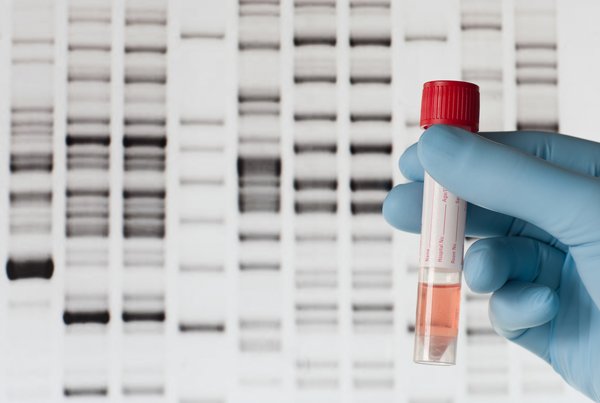CRISPR (clustered regularly interspaced short palindromic repeats) genome editing has been hyped for years. But the promise of CRISPR technology has yet to be fulfilled. That could change in the coming years, though. Major genomics breakthroughs -- and potentially explosive growth for some stocks -- could be on the way.

Forging the future
CRISPR companies forging the future
Several companies are using CRISPR to edit human genomes in an attempt to treat (and even cure) genetic diseases. Their therapies either use an ex vivo approach or an in vivo approach. With ex vivo therapies, genes are edited outside the body.
But CRISPR's use isn't limited to genetic diseases. Several gene-editing companies are also targeting various types of cancer. In particular, CRISPR is being used to develop chimeric antigen receptor (CAR) T-cell therapies, where immune cells are genetically engineered to attack specific tumors.
In addition, some companies are using CRISPR for screening (which shouldn't be confused with genetic testing). With CRISPR screening, genes are edited in a way that makes them inoperative. CRISPR screening enables companies to identify which genes perform specific functions, which is important in the development of drugs.
4 best stocks to buy
4 best CRISPR stocks to buy
Not every investor will want to buy CRISPR gene-editing stocks. These stocks tend to be highly risky and volatile. However, for aggressive investors who aren't risk-averse, here are four of the best CRISPR stocks to consider:
| Name and ticker | Market cap | Dividend yield | Industry |
|---|---|---|---|
| Beam Therapeutics (NASDAQ:BEAM) | $3 billion | 0.00% | Biotechnology |
| CRISPR Therapeutics (NASDAQ:CRSP) | $6 billion | 0.00% | Biotechnology |
| Caribou Biosciences (NASDAQ:CRBU) | $226 million | 0.00% | Biotechnology |
| Intellia Therapeutics (NASDAQ:NTLA) | $2 billion | 0.00% | Biotechnology |
Beam Therapeutics
1. Beam Therapeutics
Beam Therapeutics' base-editing approach enables the company to rewrite a single letter of the genome. While other CRISPR methods are similar to genetic scissors, base editing is more like a pencil with an eraser.
The company believes that its approach offers several advantages compared to other CRISPR techniques. These include the ability to precisely target a specific gene sequence and edit genes without unintended consequences, such as rearranging the genome on a larger-than-planned scale.
Beam isn't as far along as some of its CRISPR-focused peers. The company is evaluating three candidates in phase 1/2 clinical testing, targeting sickle cell disease, alpha-1 antitrypsin deficiency (AATD), and glycogen storage disease 1a (GSD1a), rare genetic disorders.
The company's market cap isn't above the levels of other CRISPR stocks with more advanced pipelines. However, the long-term potential for Beam's technology could justify this premium valuation.
CRISPR Therapeutics
2. CRISPR Therapeutics
CRISPR Therapeutics is the only CRISPR-focused biotech stock that has advanced beyond clinical-stage development. The company and its partner, Vertex Pharmaceuticals (VRTX 2.47%), received U.S. regulatory approvals for Casgevy in December 2023 for the treatment of sickle cell disease and in January 2024 for the treatment of transfusion-dependent beta-thalassemia.
It's evaluating two experimental CAR T-cell therapies in clinical trials. CTX112 targets CD19+ B-cell malignancies, and CTX131 targets solid tumors and blood cancers. Other pipeline programs for CRISPR Therapeutics include CTX310 and CTX320, which target cardiovascular disease, and CTX211, which is used for treating type 1 diabetes.
The drugmaker is also exploring the use of CRISPR in several preclinical programs. It's researching in vivo therapies targeting rare genetic diseases, including cystic fibrosis and Duchenne muscular dystrophy.
Although all CRISPR stocks are risky, CRISPR Therapeutics is arguably less risky than most. It has a strong cash position, primarily due to its partnership with Vertex, with an approved product on the market.
Caribou Biosciences
3. Caribou Biosciences
Caribou Biosciences was founded in 2011 by CRISPR pioneer and Nobel Prize winner Jennifer Doudna, University of Zurich biochemistry professor Martin Jinek, Johns Hopkins professor James Berger, and Rachel Haurwitz. Haurwitz has served as the company's CEO since its inception.
The biotech company invented a CRISPR gene-editing approach called chRDNA (CRISPR hybrid RNA-DNA, pronounced "chardonnay"). This technology was designed to address the limitations of other gene-editing methods and improve the precision of edits.
Caribou's pipeline features two clinical-stage programs, both of which are experimental allogeneic (or "off-the-shelf") chimeric antigen receptor T-cell (CAR-T) therapies being evaluated in phase 1 clinical trials. CB-010 targets the treatment of B-cell non-Hodgkin lymphoma, while CB-011 targets the treatment of multiple myeloma.
The company discontinued some pipeline programs in early 2025 to reduce costs and focus resources on its two lead programs. Caribou thinks its cash position should now fund operations into the second half of 2027.
Related investing topics
Intellia Therapeutics
4. Intellia Therapeutics
CRISPR Therapeutics isn't the only CRISPR-focused biotech company with a big partner. Intellia Therapeutics has teamed up with Regeneron Pharmaceuticals (REGN -1.78%).
The two companies are evaluating nexiguran ziclumeran (also known as NTLA-2001) in a phase 3 clinical study for the treatment of transthyretin amyloidosis (ATTR) with cardiomyopathy, a rare genetic disease. This experimental therapy has also advanced into another phase 3 study targeting hereditary ATTR amyloidosis with polyneuropathy.
Intellia also has a late-stage program that it fully owns. The company is evaluating lonvoguran ziclumeran (also known as NTLA-2002) in a phase 3 clinical study as a potential treatment for hereditary angioedema, a rare genetic disease characterized by severe inflammatory attacks in various organs and tissues.
Regeneron and Intellia are also working together to evaluate a CRISPR gene-editing therapy targeting hemophilia. In addition, Intellia is collaborating with multiple partners in researching the use of gene-editing therapies in treating other genetic diseases, autoimmune diseases, and cancer.
FAQ
FAQ about the best CRISPR companies to invest in
Which company is leading CRISPR?
Although several biotech companies have CRISPR gene-editing therapies in clinical development, only CRISPR Therapeutics and its partner, Vertex Pharmaceuticals, have an approved CRISPR product on the market.
What is the best CRISPR stock to buy?
It's difficult to identify the sole best CRISPR stock to buy. CRISPR Therapeutics is arguably the safest pick since the company already has a product on the market. However, other clinical-stage CRISPR stocks may have greater upside potential over the next few years, albeit with greater risk.
Should you invest in CRISPR?
CRISPR stocks probably won't be a good fit for risk-averse investors. However, aggressive investors willing to wait for pipeline programs to mature could find several CRISPR stocks attractive.
What company has the patent for CRISPR?
The ownership of CRISPR patents is somewhat complicated. The Broad Institute of MIT and Harvard holds the patent for the use of CRISPR in cells with a nucleus, which includes most living organisms.
The University of California-Berkeley, the University of Vienna, and Emmanuelle Charpentier also hold patents for CRISPR technology. Additionally, several biotech companies, including Beam Therapeutics, CRISPR Therapeutics, Editas Medicine (NASDAQ:EDIT), and Intellia Therapeutics, hold CRISPR-related patents.
Will CRISPR ever be profitable?
There's no guarantee that companies focusing on CRISPR gene editing will be profitable in the future. However, if more companies secure approvals for CRISPR therapies and achieve commercial success, the chances that some will eventually generate profits should be pretty good.









